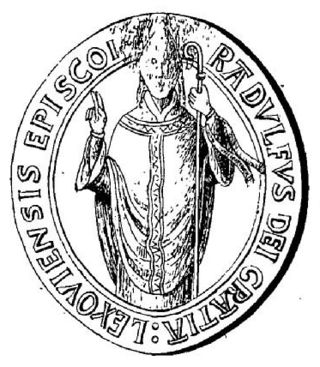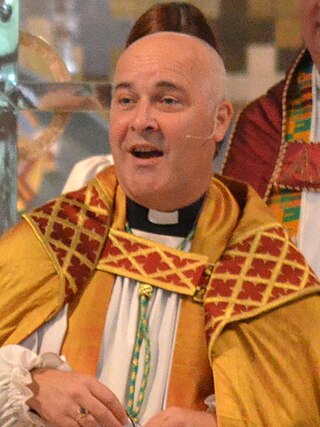Related Research Articles

Walter de Merton was Lord Chancellor of England, Archdeacon of Bath, founder of Merton College, Oxford, and Bishop of Rochester. For the first two years of the reign of Edward I he was - in all but name - Regent of England during the King's absence abroad. He died in 1277 after falling from his horse, and is buried in Rochester Cathedral.
Waldric was the eighth Lord Chancellor and Lord Keeper of England, from 1103 to 1107. He was also Bishop of Laon from 1106 to 1112. He had been a royal chaplain as early as 3 September 1101.

Ralph de Warneville was the twentieth Lord Chancellor of England as well as later Bishop of Lisieux in Normandy.
Richard le Gras was Lord Keeper of England and Abbot of Evesham in the 13th century.
Sir John Lexington was a baron and royal official in 13th century England. He has been described as having been Lord Chancellor, but other scholars believe he merely held the royal seals while the office was vacant or the chancellor was abroad. He served two terms, once from 1247 to 1248, and again from 1249 to 1250.
Ealdred of Lindisfarne was Bishop of Lindisfarne, perhaps dying around 968.

The Archbishop of York is a senior bishop in the Church of England, second only to the Archbishop of Canterbury. The archbishop is the diocesan bishop of the Diocese of York and the metropolitan bishop of the province of York, which covers the northern regions of England as well as the Isle of Man.
Sir Robert Parning was an English lawyer and administrator.
John Blund was an English scholastic philosopher, known for his work on the nature of the soul, the Tractatus de anima, one of the first works of western philosophy to make use of the recently translated De Anima by Aristotle and especially the Persian philosopher Avicenna's work on the soul, also called De Anima. He taught at Oxford University along with Edmund of Abingdon. David Knowles said that he was "noteworthy for his knowledge of Avicenna and his rejection of the hylomorphism of Avicebron and the plurality of forms.", although the problem of the plurality of forms as understood by later scholastics was not formulated explicitly in Blund's time. Maurice Powicke calls him the "first English Aristotelian."
Robert de Sigello was a medieval Bishop of London and Lord Chancellor of England.
Ralph Baldock was a medieval Bishop of London.
Richard de Wentworth was a medieval Bishop of London.
Ealdbeorht may have been a medieval Bishop of Dunwich.
Aethelweald was a medieval Bishop of Elmham.
Eadmund was a 9th-century Englishman. It had been thought he had been Bishop of Winchester between 833 and 838. However, following further studies he is no longer listed to have been bishop.
William Hamilton was deputy chancellor of England from 1286 to 1289, then Lord Chancellor from 1305 to his death on 20 April 1307. He was also Dean of York.
John Scarle was keeper of the rolls of Chancery from 1394 to 1397 and Archdeacon of Lincoln before being named Lord Chancellor of England in 1399. He held that office until 9 March 1401. He was also Clerk of the Parliament between November 1384 and February 1397.
Wulfsige was a medieval Bishop of Cornwall.
Æthelred was a medieval Bishop of Cornwall.
Cuthwine was a medieval Bishop of Leicester.
References
- Powicke, F. Maurice and E. B. Fryde Handbook of British Chronology 2nd. ed. London:Royal Historical Society 1961